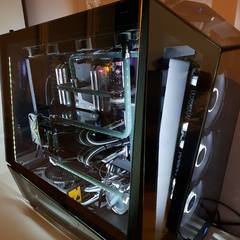Anandtech's Initial remarks about their unusual Ryzen 2 benchmarks
-
Topics
-
porina ·
Posted in New Builds and Planning1 -
Rothinsky ·
Posted in Troubleshooting1 -
skayqz ·
Posted in Graphics Cards6 -
0
-
1
-
Ricodotsh ·
Posted in New Builds and Planning5 -
3
-
diamondx12 ·
Posted in Networking3 -
Deni_I ·
Posted in Storage Devices7 -
1
-

















Create an account or sign in to comment
You need to be a member in order to leave a comment
Create an account
Sign up for a new account in our community. It's easy!
Register a new accountSign in
Already have an account? Sign in here.
Sign In Now